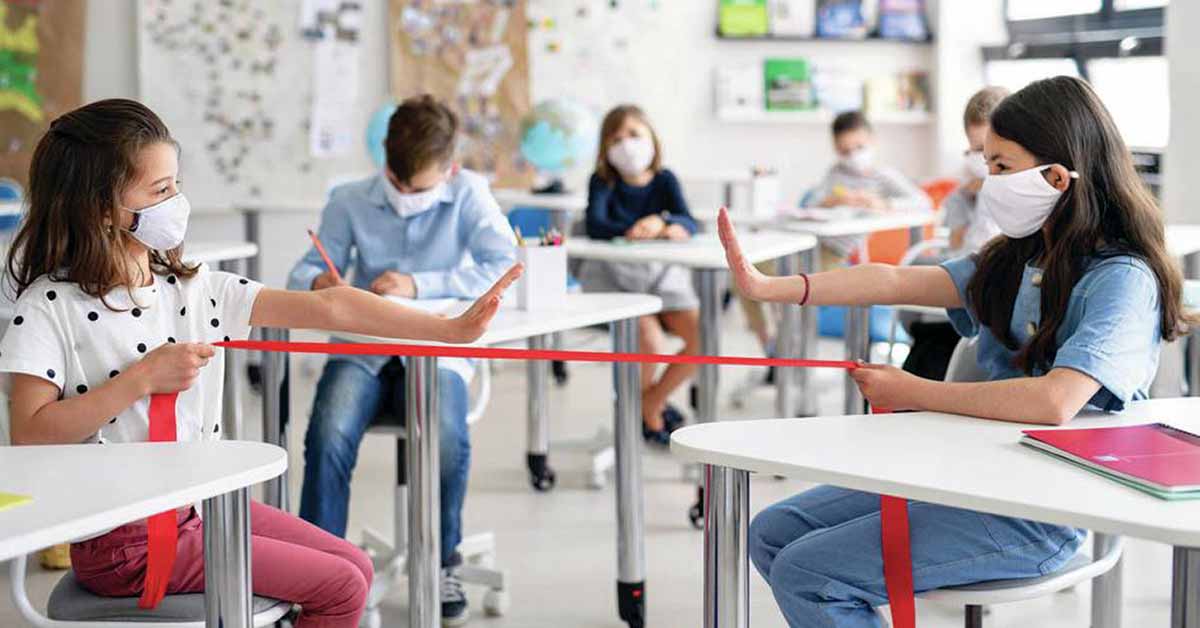Schools in London have resumed after a 6-month suspension due to the COVID-19 pandemic. With 5-8% of children in the UK estimated to have one or more food allergies, a campaign entitled “Check It, Don’t Chance It” has launched urging schools to check their supply of epinephrine auto-injectors (EAIs) and ensure their staffs are trained to administer it when anaphylaxis is suspected.
Epinephrine (or adrenaline, as it is commonly referred to in the UK) is the only drug that can halt the progression of anaphylaxis, a serious, life-threatening allergic reaction to a food or insect sting.
See the article “Epinephrine First, Period” for an explanation of why epinephrine should be administered immediately when anaphylaxis is suspected.
Said Amena Warner, Head of Clinical Services at Allergy UK:
For many parents, the prospect of their child being back at school will bring with it some worries and anxiety. In this time of coronavirus, and after such a long break, those worries will be heightened as children face restrictions that will significantly change the ‘normal’ school experience. For parents of children with food allergy, their anxiety will be particularly acute with very specific worries about the care and safety of their child in this ’new normal’ school environment.
Schools have implemented many changes to keep pupils and staff safe during the Covid-19 pandemic including social distancing bubbles, regular hand washing and cleaning of shared spaces. A ‘no sharing of food’ policy will be one additional protective measure for the food allergic child who should always be aware that they should not share or accept food from others.
However, all schools must also ensure measures are in place and they are adhering to the strict guidance governing the health care and safeguarding needs of children in schools which includes the administration of allergy medication and adrenaline [epinephrine] auto-injectors.
The actions urged by the “Check It, Don’t Chance It” campaign for London schools include the following, which have been modified to use US terminology and metrics:
- Expiration Dates: With schools having been closed for six months it is important that schools holding either the child’s own EAIs or stock EAIs check that they are still up to date. EAIs are typically dispensed with a shelf life of 12-18 months so many held in schools are likely to have expired and will need replacing. When replacing expired EAIs schools can register their new devices on the manufacturer’s website to receive future timely text and email alerts when the expiry date approaches.
- Storage: Epinephrine must also be stored correctly. EAIs should be kept in their original containers to prevent light exposure, must not be stored above 25°C (77°F) and must not be refrigerated or frozen. All EAIs have a small window that allows the adrenaline inside to be checked. The liquid should be clear and colourless. Any EAIs where the liquid appears discolored or contains particles should be replaced. EAIs should be stored in a safe, but easily accessible place where they are no more than five minutes away from the child at any time.
- The child’s weight and dose of epinephrine: EAI pens for school-age children available in two doses 0.15mg and 0.3mg. Children grow fast so parents are urged to keep an eye on their child’s weight and ask their GP to prescribe the higher dose EAI once they have reached the appropriate weight as instructed by the epinehprine manufacturer.
- Allergy Action Plan: Every child with severe allergies needs to have an allergy action plan which should be kept with their EAIs. Check that this plan is up to date at all times.
- Training: Check that all school staff members are fully aware of the signs and symptoms of anaphylaxis, how to provide emergency treatment, and the implications for management of severely allergic children in school.
We at SnackSafely.com urge schools in the US that are welcoming students back to do likewise. Here are a number of resources available to help schools ensure they are adequately prepared:
- The National Association of School Nurses’ (NASN) “Allergies and Anaphylaxis” page offers a number of resources developed by the NASN, the Centers for Disease Control (CDC), and recognized medical authorities;
- Food Allergy Research and Education’s (FARE) “Back to School Headquarters” page offers a toolkit for parents, students, and teachers to prepare for this year’s unique back to school experience;
- The CDC’s “Food Allergies in Schools Toolkit” provides tip sheets, training presentations, and podcasts to help school staff implement recommended guidelines.






